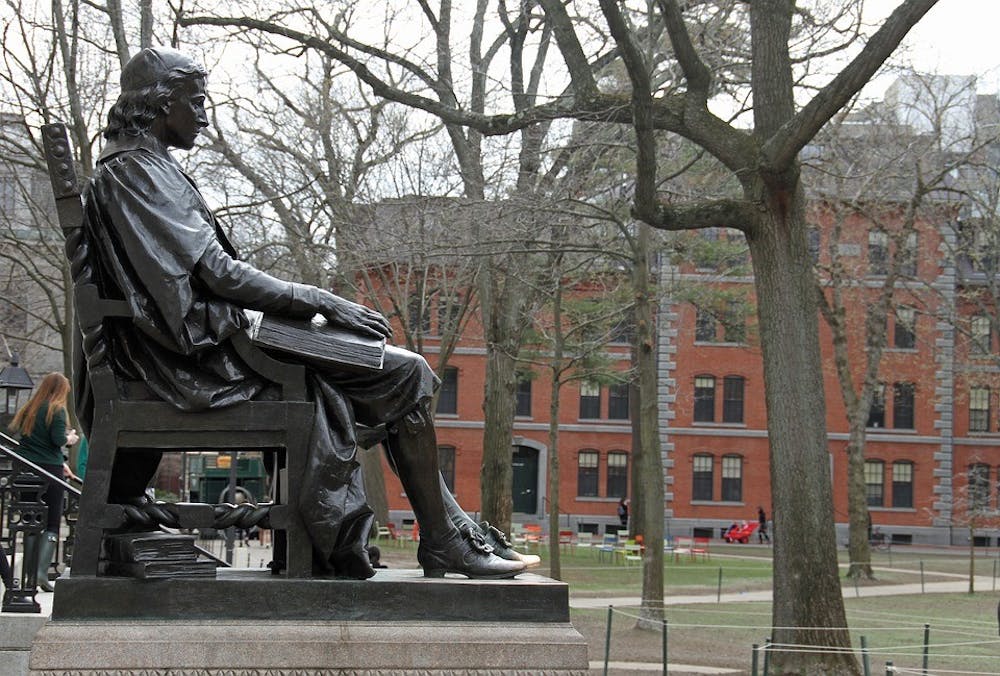The United States Justice Department sided against Harvard Thursday, arguing the university has failed to prove it does not unlawfully discriminate against Asian Americans in its admissions process. The statement was filed exactly one month after all of the Ivies backed Harvard in an amicus brief, which defended race-conscious admissions processes in order to preserve diversity and equal opportunity.
There's a lot at stake for Penn. If the lawsuit prevails, affirmative action policies could be in jeopardy, and so could federal funding.
Penn Dean of Admissions Eric Furda has acknowledged what's at risk, saying, "It's incredible pressure; hang that over anyone's head," referring to the possibility of an investigation by departments in the Trump administration. Nonetheless, he said race-conscious admission policies are critical in creating a diverse campus and learning environment.
“The framework [of Penn's admission policy] is valuing a diverse educational environment and what that looks like,” Furda said. “To get then to that next piece, [the question is] what policies do you need to have?”
Students for Fair Admissions, an anti-affirmative action group, filed the original complaint in 2014, alleging that all Ivy League schools had coordinated a cap on Asian-American students admitted to the schools. The argument used the fact that Asian-American students represented relatively equivalent shares of the total student population at each school as evidence for the alleged unlawful discrimination. Harvard has rejected the allegation of such coordination among schools.
Furda said that while there may be other strategies to circumvent current policies and achieve racial diversity, other policy proposals will ultimately draw on racial and ethnic differences as well.
Without the race-conscious admission policies, he said, “[Penn] wouldn’t be intellectually, socially, or in any way as compelling a place to attend.”
Colleges that have come to Harvard's aid have mirrored Furda's sentiment, but schools have not addressed the specific evidence suggesting that Asian-American students were held to a higher standard in the admissions process, the New York Times reported.
RELATED:
The anti-affirmative action group suing Harvard wants the school to release its admissions data
U.S. DOJ launches investigation into practice of sharing of ED applicants information
“Penn Admissions considers many individual factors in the decision process including high school courses, grades, test scores, recommendations, personal essays, alumni interviews, background and experiences, and accomplishments. In the process, we do not discriminate against any racial, religious, ethnic or other group of applicants," Furda wrote in a written statement in response to a request to comment on whether Asian-American applicants were held to a higher standard.
The case against Harvard comes at a time when the Trump administration has already decided to roll back on Obama-era affirmative action policies. Universities that choose to continue race-conscious policies are at risk of a DOJ investigation and face a loss of federal funding from the Department of Education.
Penn, along with the rest of the Ivy League, receives significant federal funding. The Ivies draw billions of dollars from the federal government each year for research. Between 2010 and 2015, the eight universities received nearly $41.59 billion from taxpayer-funded payments and benefits.
Furda remained steadfast in the University's position that affirmative action is beneficial to the school community and learning experience.
"I think more than anything," Furda said, "if you’re going to stand up for your values, you need to stand up for your values regardless of what those consequences are. Nelson Mandela went to prison."









